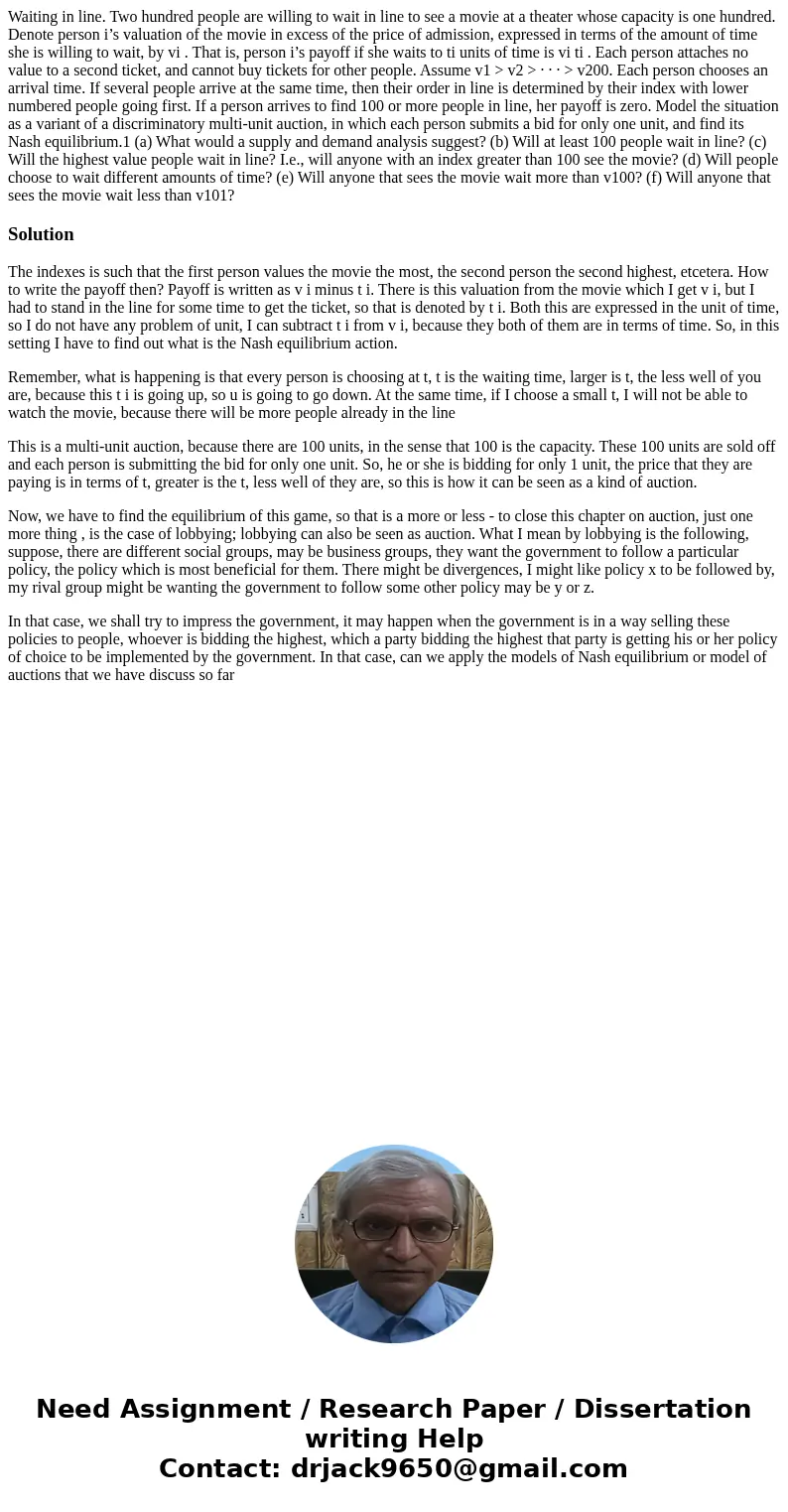Waiting in line Two hundred people are willing to wait in li
Waiting in line. Two hundred people are willing to wait in line to see a movie at a theater whose capacity is one hundred. Denote person i’s valuation of the movie in excess of the price of admission, expressed in terms of the amount of time she is willing to wait, by vi . That is, person i’s payoff if she waits to ti units of time is vi ti . Each person attaches no value to a second ticket, and cannot buy tickets for other people. Assume v1 > v2 > · · · > v200. Each person chooses an arrival time. If several people arrive at the same time, then their order in line is determined by their index with lower numbered people going first. If a person arrives to find 100 or more people in line, her payoff is zero. Model the situation as a variant of a discriminatory multi-unit auction, in which each person submits a bid for only one unit, and find its Nash equilibrium.1 (a) What would a supply and demand analysis suggest? (b) Will at least 100 people wait in line? (c) Will the highest value people wait in line? I.e., will anyone with an index greater than 100 see the movie? (d) Will people choose to wait different amounts of time? (e) Will anyone that sees the movie wait more than v100? (f) Will anyone that sees the movie wait less than v101?
Solution
The indexes is such that the first person values the movie the most, the second person the second highest, etcetera. How to write the payoff then? Payoff is written as v i minus t i. There is this valuation from the movie which I get v i, but I had to stand in the line for some time to get the ticket, so that is denoted by t i. Both this are expressed in the unit of time, so I do not have any problem of unit, I can subtract t i from v i, because they both of them are in terms of time. So, in this setting I have to find out what is the Nash equilibrium action.
Remember, what is happening is that every person is choosing at t, t is the waiting time, larger is t, the less well of you are, because this t i is going up, so u is going to go down. At the same time, if I choose a small t, I will not be able to watch the movie, because there will be more people already in the line
This is a multi-unit auction, because there are 100 units, in the sense that 100 is the capacity. These 100 units are sold off and each person is submitting the bid for only one unit. So, he or she is bidding for only 1 unit, the price that they are paying is in terms of t, greater is the t, less well of they are, so this is how it can be seen as a kind of auction.
Now, we have to find the equilibrium of this game, so that is a more or less - to close this chapter on auction, just one more thing , is the case of lobbying; lobbying can also be seen as auction. What I mean by lobbying is the following, suppose, there are different social groups, may be business groups, they want the government to follow a particular policy, the policy which is most beneficial for them. There might be divergences, I might like policy x to be followed by, my rival group might be wanting the government to follow some other policy may be y or z.
In that case, we shall try to impress the government, it may happen when the government is in a way selling these policies to people, whoever is bidding the highest, which a party bidding the highest that party is getting his or her policy of choice to be implemented by the government. In that case, can we apply the models of Nash equilibrium or model of auctions that we have discuss so far

 Homework Sourse
Homework Sourse